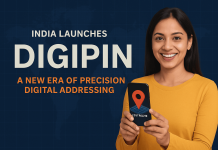Table of Contents
A New Breakthrough in AI

Artificial intelligence (AI) is changing the way we live, work, and interact with technology. AI powers tools that make our lives easier, from voice assistants to self-driving cars. However, AI also faces big challenges, one of which is its inability to process complex tasks efficiently without losing accuracy.
Google recently announced a breakthrough that might solve one of the biggest problems in AI development: making it more efficient and reliable. This advancement could make AI smarter, faster, and more useful for everyone.
In this blog, we’ll explore the details of this breakthrough, why it’s important, and how it might shape the future of AI.
What Was the Big Problem?
AI systems rely on models to learn and perform tasks. These models are like the brain of an AI, processing data and making decisions. However, as these models become larger and more complex, they face three major issues:
- Efficiency:
Bigger models require more energy and time to process information, making them slow and costly to run. - Accuracy:
Complex models sometimes fail to deliver accurate results, especially when given new or unusual tasks. - Scalability:
As AI expands into more industries, building models that can handle a wide variety of tasks becomes harder.
These challenges limit how AI can be used in areas like healthcare, education, and environmental science.
What Did Google Discover?

Google’s researchers developed a new system that allows AI to process tasks more efficiently while maintaining or improving accuracy. This system uses an advanced technique called adaptive learning to address the problems of efficiency and scalability.
Key Features of the Breakthrough
- Dynamic Processing:
Instead of using the same amount of resources for every task, the AI adjusts how much processing power it uses based on the complexity of the task. This saves energy and speeds up processing. - Layered Learning:
The new system layers tasks so that the AI can learn simpler tasks first and then build on that knowledge to handle more complicated ones. - Better Decision-Making:
By focusing on the most important parts of a task, the AI avoids wasting time and resources on unnecessary details, improving its accuracy.
Why is This Breakthrough Important?
Google’s advancement is a game-changer for AI development, offering several benefits:
1. Faster AI Systems
The new system allows AI to process information more quickly, making it better suited for real-time applications like self-driving cars or emergency response systems.
2. Energy Efficiency
AI models often require a lot of energy to run, which is bad for the environment. Google’s solution reduces energy use, making AI greener and more sustainable.
3. Smarter AI for Everyday Use
With improved accuracy and adaptability, AI tools like virtual assistants, language translators, and recommendation systems will work better for users.
4. Unlocking New Applications
Industries like healthcare, agriculture, and climate science can benefit from AI models that are both scalable and reliable. For example:
- Doctors could get faster and more accurate diagnoses.
- Farmers could predict crop yields with greater precision.
- Scientists could model climate change impacts more effectively.
How Does This Impact AI’s Future?
Google’s breakthrough doesn’t just solve immediate problems—it lays the groundwork for the next generation of AI systems. Here’s how:
1. Expanding AI Access
Smaller businesses and organizations can afford to use AI by reducing costs and energy use, spreading its benefits to more people worldwide.
2. Personalizing AI Tools
With better learning methods, AI systems can become more personalized, understanding user preferences and needs better.
3. Tackling Complex Challenges
From space exploration to curing diseases, this new AI system can handle larger and more intricate problems, opening doors to innovations we can only dream of today.
What Challenges Still Remain?
While this discovery is promising, there are still hurdles to overcome:
- Ethical Concerns:
As AI becomes smarter and more widely used, it raises questions about data privacy, bias, and decision-making. - Implementation:
Adopting this new system across industries will take time, and not all organizations may be ready for the change. - Continued Research:
AI is an evolving field, and even with this breakthrough, there’s still much to learn about improving systems.
Conclusion: A Bright Future for AI
Google’s breakthrough in solving one of AI’s biggest problems is a step forward in making artificial intelligence more efficient, accurate, and useful. By addressing challenges like energy use and scalability, this advancement could make AI accessible to more people and industries, unlocking new possibilities for innovation.
As AI continues to improve, its impact will only grow, transforming how we live, work, and solve some of the world’s biggest challenges. With continued research and ethical considerations, the future of AI looks brighter than ever.





































